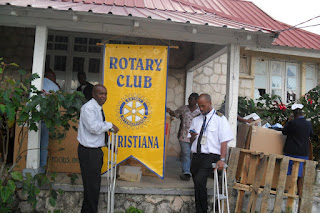Our District exchange with Rotary District 9750 in Australia will depart on 18 October 2012 and return on 17 November 2012, for an exchange lasting 4 weeks. Our District Outbound Team will consist of a Rotarian Team Leader (we have already selected an outstanding Rotarian, Tom Guyette of Green Bay) and four non-Rotarians selected from within District 6220. There is no specific vocational focus and applicants from all vocational areas are encouraged to apply.
We need to get the word out about this incredible program. Please mention this opportunity of a lifetime to eligible persons who may benefit from this experience.
A notice will also be posted in the District newsletter, notices will be sent to the larger newspapers in the District, and also to Young Professional groups affiliated with various Chambers of Commerce within the District.
In the notices to be distributed, interested persons will be asked to contact a local Rotary Club or me as GSE Outbound Coordinator. In the event I am contacted directly, I will contact local club Presidents to inform them of an interested applicant from their area, since each applicant must be sponsored by a club. You may wish to invite interested persons to your club meeting, to give them an idea of what Rotary is all about, as well as acquainting them with the club for the purpose of possible future membership.
The application deadline is 15 April 2012 with committee interviews and selections scheduled for 28 April 2012. Exchanges are open to all who work or reside in District 6220, provided they are not an immediate family member of a Rotarian. Applicants must be least 25 years old and no more that 41 at the time of their application.
Answers to frequently asked questions:
+ Clubs may sponsor multiple applicants and multiple applicants from the same club may be chosen
+ Applicants must be engaged in full employment
+ Applicants may not be a spouse or child of a Rotarian
+ Applicants must live or work in District 6220
+ All expenses for the exchange will paid by Rotary except clothing and
any small gifts members choose to bring to their host families
+ Teams will participate in a minimum of three or four preparation weekends prior to the departure date
Applications and information may be obtained from the Rotary International website:
www.rotary.org
Click on "Service and Fellowship"
Then click "Group Study Exchange"
Then click GSE team member application
E-mail application to:
Fred Borchardt
fborchardt@juno.com
For questions call Fred Borchardt at 920-277-2750
Applicants will be contacted with additional instructions regarding the application process.



